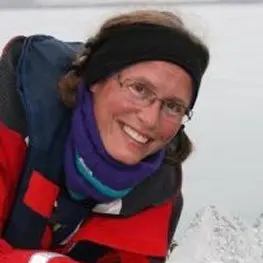AB-332 Arctic Marine Molecular Ecology (10 ECTS)
ID:
AB-332
CREDITS:
10 ECTS
APPLICATION DEADLINE:
March 01, 2025
START DATE:
September 22, 2025
END DATE:
October 31, 2025
COURSE PERIOD:
Autumn semester. Teaching block 6

AB-332/832 students collecting water samples. Photo: Malene Strøm Dieseth.
| Grade: | Letter grade (A through F) |
| Course Cost: | Fieldwork, NOK 0–800 (up to 4 days x NOK 200 per overnight stay) |
| Course Capacity Min/Max: | 10/20 students (AB-332/832 in total) |
| Language of instruction: | English |
| Examination support material: | Bilingual dictionary between English and mother tongue |
Course requirements
Enrolment in a relevant master programme.
Academic content
Molecular genetics has become a significant part of the toolbox of marine ecologists. Such tools are invaluable in studies of e.g., biodiversity, microbial ecology, environmental genomics and transcriptomics, trophic interactions, and in general in studies aiming to understand the evolutionary backdrop of ecological processes. We will utilize the Isfjorden system as a marine laboratory to collect samples that we subject to various molecular genetic analyses in the UNIS molecular laboratories.
The combination of field-based high Arctic studies with the use of molecular genetic techniques will facilitate in-depth understanding of the high Arctic ecosystem. The course will focus on selected parts of the marine ecosystem, although giving an introduction to the whole system. We will evaluate the utility of molecular tools. Their practical applications will represent a significant part of the student projects.
Learning outcomes
Upon completing the course, the students will be able to:
Knowledge
- briefly describe the key components of the Arctic marine ecosystem
- discuss the utility of molecular tools in marine ecology
- examine which molecular technique is most appropriate to different ecological questions
- evaluate the advantages and caveats of using molecular genetics in ecology.
Skills
- apply genetic tools to own projects
- plan and carry out a study in molecular ecology
- use relevant statistic tools to analyse data obtained in typical molecular ecological projects.
General competences
- communicate own results to the scientific community
- write scientific reports based on own samples and data analyses
- collaborate on group projects.
Learning activities
The course extends over 5-6 weeks including compulsory safety training, and is run in combination with AB-832.
Ship-based field sampling will be conducted to secure samples for student group projects, either as one-day excursions or staying out a few days in Isfjorden. The molecular laboratories of UNIS will be utilised to process samples for student projects. Training in the use of relevant bioinformatic and statistical analyses will be given.
Summary
- Total lecture and seminar hours: 30–40 hours.
- Laboratory work: 7–10 days.
- Excursions: 2–4 days.
Compulsory learning activities
All compulsory learning activities must be approved in order to sit the exam.
- Field excursions
- Laboratory work
Assessment
- All assessments must be passed in order to pass the course.
- Each assessment is graded, and subsequently combined into a single grade. Partial grades for each assessment will be available.
| Method |
Percentage of final grade
|
| Project report (group) | 40% |
| Oral exam (invidual) | 60% |
Student life
Want to know more about this course? Read this blog post from a former student.


